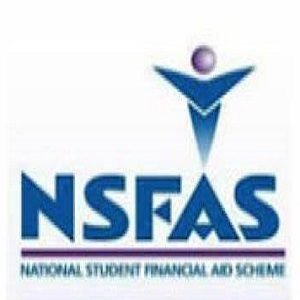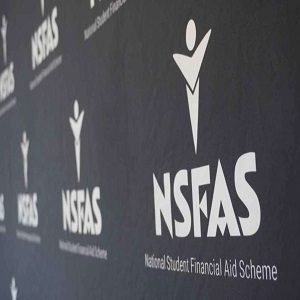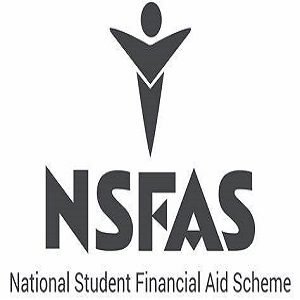Empowering Education: Exploring South Africa’s Bursary Program
Introduction:
Access to quality education is fundamental to individual empowerment and national development. In South Africa, where socio-economic disparities persist, bursaries serve as crucial instruments for ensuring that talented individuals from all backgrounds have the opportunity to pursue higher education.
The South African bursary program encompasses a diverse array of initiatives offered by government agencies, corporate entities, educational institutions, and non-governmental organizations (NGOs). In this article, we delve into the landscape of South Africa’s bursary program, examining its significance, key stakeholders, eligibility criteria, application process, and impact on fostering academic excellence and socio-economic inclusion.
Significance of the SA Bursary Program:
The South African bursary program plays a pivotal role in addressing systemic inequalities and expanding access to education. By providing financial assistance to students, bursaries alleviate the burden of tuition fees, accommodation costs, and other expenses associated with higher education. Moreover, bursaries empower individuals from marginalized communities to overcome socio-economic barriers and pursue their academic aspirations, regardless of their financial circumstances. In doing so, the bursary program contributes to the development of a skilled workforce, promotes social mobility, and drives economic growth and innovation.
Key Stakeholders:
The success of the South African bursary program hinges on collaboration among various stakeholders committed to advancing education and human development. Key stakeholders include:
- Government Agencies: The South African government, through departments such as the Department of Higher Education and Training (DHET) and the National Student Financial Aid Scheme (NSFAS), administers bursaries and scholarships to support students from low-income households. These initiatives aim to promote access to education, address skills shortages, and foster youth development.
- Corporate Entities: Many companies operating in South Africa recognize the importance of investing in education as part of their corporate social responsibility (CSR) initiatives. Corporate bursary programs provide financial support to students pursuing studies relevant to the company’s industry, such as engineering, finance, and information technology. These initiatives not only contribute to the development of a skilled workforce but also enhance the company’s reputation and brand image.
- Educational Institutions: Universities, colleges, and technical vocational education and training (TVET) institutions play a crucial role in supporting students through internal bursary programs and partnerships with external funders. These institutions may offer merit-based bursaries, need-based scholarships, or awards targeting specific demographic groups or academic disciplines.
- Non-Governmental Organizations (NGOs): NGOs and philanthropic organizations are instrumental in expanding access to education and empowering marginalized communities through bursaries and scholarships. These organizations often target underprivileged students, individuals from rural areas, or those facing socio-economic challenges, providing financial assistance, mentorship, and other forms of support.
Eligibility Criteria:
The eligibility criteria for South African bursaries vary depending on the provider, target demographic, and field of study. However, common criteria may include:
- South African Citizenship: Bursaries are typically available to South African citizens, although some programs may extend eligibility to permanent residents or individuals with refugee status.
- Academic Performance: Applicants are usually required to demonstrate strong academic performance, as evidenced by high school or tertiary institution transcripts. Academic criteria may include minimum grade requirements in specific subjects or overall academic achievement.
- Financial Need: Some bursary programs prioritize candidates from low-income households or those facing financial constraints. Applicants may be required to provide proof of household income or demonstrate financial need through means-testing.
- Field of Study: Bursaries may be targeted towards specific fields of study deemed critical for national development or aligned with the funder’s priorities. Common fields include engineering, science, commerce, information technology, education, and healthcare.
Application Process:
The application process for South African bursaries typically involves the following steps:
- Research: Prospective applicants should research available bursary programs and identify those aligned with their academic interests, career goals, and eligibility criteria. Information about bursaries can often be found on the websites of government agencies, corporate entities, educational institutions, and NGOs.
- Application Submission: Once prospective applicants have identified suitable bursary programs, they must complete and submit the required application forms by the specified deadline. Applications may be submitted online, via email, or through postal mail, depending on the preferences of the funder.
- Supporting Documentation: Applicants are usually required to provide supporting documentation to verify their eligibility, such as certified copies of academic transcripts, identity documents, proof of household income, and letters of recommendation. It is essential to ensure that all required documents are accurately completed and submitted alongside the application form.
- Assessment and Selection: Bursary providers review applications received and assess candidates based on their academic performance, financial need, alignment with program criteria, and any additional selection criteria specified by the funder. Shortlisted candidates may be invited for interviews, assessments, or further evaluation.
- Notification of Outcome: Successful applicants are notified of their bursary awards, including details of the funding amount, duration, and any additional requirements or conditions. Unsuccessful candidates may receive feedback on their applications to help them understand areas for improvement or alternative funding options.
Impact of the SA Bursary Program:
The South African bursary program has a profound impact on individuals, communities, and the broader society. Some of the key benefits and impacts include:
- Access to Education: Bursaries provide opportunities for individuals from disadvantaged backgrounds to access higher education, breaking the cycle of poverty and expanding opportunities for personal and professional growth.
- Skills Development: By supporting students in fields of study aligned with national priorities, bursaries contribute to the development of a skilled workforce equipped to address skills shortages, drive innovation, and support economic development.
- Socio-economic Inclusion: Bursaries promote socio-economic inclusion by providing opportunities for historically marginalized groups, including black South Africans, women, and individuals with disabilities, to participate in higher education and pursue rewarding careers.
- Talent Retention and Development: Bursaries help retain talented individuals within South Africa by providing financial support for their education and reducing the likelihood of brain drain to other countries. This talent retention is essential for fostering local innovation and competitiveness.
- Community Development: Bursary recipients often become role models and agents of change within their communities, inspiring others to pursue education and contribute to community development initiatives.
Conclusion:
The South African bursary program plays a vital role in advancing education, promoting social mobility, and driving socio-economic development. Through collaboration among government agencies, corporate entities, educational institutions, and NGOs, bursaries provide opportunities for deserving individuals to access higher education, develop their skills, and contribute to the prosperity of the nation. As the bursary landscape continues to evolve, stakeholders must remain committed to expanding access to education, fostering inclusivity, and empowering South African youth to realize their full potential.




